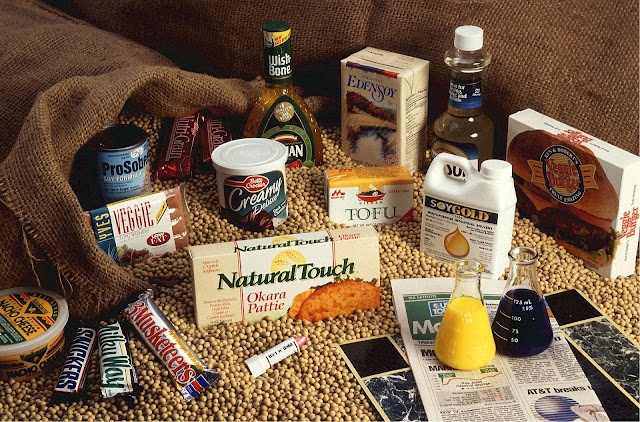Have you ever gotten sick out of nowhere and didn't know how or why? What makes soy such a risky food to eat? Discover all the answers as to why people all over the world have joined the "ban' soy campaign and why you shouldn't be too far behind.
It may seem to many that a good thing is being done when the choice is made to go for soy products. Sadly. this is not the case.
However, having a clear understanding is needed and very much necessary because not all soy products are created equal. Whole and fermented soy foods should be consumed in moderation.
What is soy?
Soy is a protein derived from a plant, particularly a soybean.
Soybeans continue to become a significant eyebrow raising issue because soy tends to alter how your intestines absorb medication.
Soybean Products
Soybeans were originally derived in East Asia and rapidly made it's way to the U.S and other countries. It contributes to the making of some popular soy products, such as soy sauce, soy milk, soy lecithin, soy infant formula, soy burgers, vegetable oil, tofu, soy flour, energy bars, nutriment supplement drinks, junk food (candy bars, cookies, cakes), frankensoy, TVP (textured soy protein) SPI (soy protein isolate) and tempeh.
The Problem With Soy Consumption
The Problem With Soy Consumption
The problem arises with the generic derived soy (processed soy) that is readily sold and shipped across the U.S. Foods with “soy protein” on the label are made of processed forms of soy. This simply means that the soy contained in that product is processed.
When soy is processed, the nutrients are basically stripped away. Nutritionists, consider it to be a “ghost” of a health food when it comes down to this method.
When soy is processed, the nutrients are basically stripped away. Nutritionists, consider it to be a “ghost” of a health food when it comes down to this method.
Whole soy foods is the best route, they are not processed, so they naturally retain the most nutritional benefit for you. With the strike on drinking whole milk, many strayed towards soy milk and a much wiser choice choosing almond milk.
Fresh soy milk is the best choice for consumption and rarely available at a limited amount of health food stores. If you can't acquire it easily, be sure to choose whole-bean soy milk to avoid soy milk made from soy isolate or soy protein. If you choose to consume soy, it is recommended to have 1 to 2 servings of "whole and fermented" soy foods.
Why is soy dangerous?
In America, soy use has been steadily growing and popping up everywhere and in everything. However, there are just as many controversies circling around how unsafe it is to eat. Raw soybeans are hazardous to human health. This is due to naturally occurring inhibitors called trypsin.
In 2007, various scientists in the U.S. officially asked the FDA to revoke its heart-related health claim for soy protein.
As stated on the Dr. Oz show, soy yields dangerous for those who suffer from thyroid dis-ease or currently take any thyroid medications. This is because soy products may interfere with how the body absorbs the medication in the GI tract, making it less effective.
Unfortunately, in the United States, we seldom consume soybeans in their whole natural form (either fresh or dried). Instead, we process soybeans by using hexane or other solvents to remove the oil (which can be sold as cooking oil or oil to be added to other processed foods), and then we take what's left over (defatted soy flour) and either (1) combine it with other proteins to make animal feed or (2) wash it with water to create soy protein concentrate. Soy protein concentrate becomes the source for two forms of soy that are even more processed: TVP, or textured soy protein that can be produced through a process called extrusion, and SPI (soy protein isolate), which can be produced by making the soy protein concentrate more solubilized. SPI is used in many low-fat soy milks. Read full article here
Always keep in mind as with anything that you put into your body, that it should be taken in moderation.







No comments:
Post a Comment
Note: Only a member of this blog may post a comment.